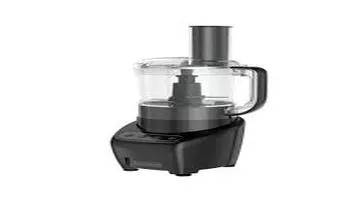Biodegradable Uniforms – A Step Towards Sustainable Fashion
Biodegradable uniforms are an innovative solution in sustainable fashion, designed to minimize environmental impact. Made from natural fibers such as organic cotton, hemp, or bamboo, these uniforms break down naturally after disposal, reducing landfill waste and pollution. Unlike traditional synthetic uniforms, which can take decades to decompose, biodegradable options decompose within months to a few years, depending on environmental conditions. These uniforms often incorporate eco-friendly dyes and treatments, ensuring that no harmful chemicals are released into the ecosystem. Ideal for industries prioritizing sustainability, biodegradable uniforms offer a balance of durability, comfort, and environmental responsibility. By adopting these eco-conscious garments, companies can significantly reduce their carbon footprint and contribute to a more sustainable future.

In an era where sustainability and environmental consciousness are becoming increasingly crucial, the introduction of biodegradable uniforms represents a significant stride towards responsible fashion. These uniforms, designed to break down naturally at the end of their lifecycle, offer a promising alternative to traditional synthetic fabrics that contribute to long-term environmental pollution. This review delves into the various aspects of biodegradable uniforms, evaluating their eco-friendliness, functionality, and overall impact on both the environment and the industry.
Eco-Friendliness: A Green Revolution
One of the most compelling reasons to support biodegradable uniforms is their reduced environmental footprint. Unlike conventional uniforms made from polyester or nylon, which can take hundreds of years to decompose, biodegradable fabrics are designed to break down naturally within a much shorter timeframe. Materials such as organic cotton, bamboo fibers, and Tencel (lyocell) are commonly used in these uniforms, all of which are derived from renewable resources and are fully biodegradable.
Organic cotton, for instance, is grown without the use of harmful pesticides or synthetic fertilizers, leading to a lower environmental impact during cultivation. Bamboo fibers, on the other hand, are known for their rapid growth and minimal need for water and chemicals, making them an excellent sustainable resource. Tencel, sourced from sustainably managed forests, boasts a closed-loop production process that recycles water and solvents, further minimizing its ecological footprint.
Moreover, the biodegradability of these fabrics ensures that once the uniforms are discarded, they will not linger in landfills for centuries. Instead, they will decompose naturally, returning valuable nutrients to the soil and supporting the growth of new plant life. This cycle of sustainability is a stark contrast to the persistent pollution caused by synthetic uniforms, which shed microplastics and contribute to soil and water contamination.
Functionality: Merging Sustainability with Performance
While the environmental benefits of biodegradable uniforms are clear, their functionality is equally impressive. Modern biodegradable fabrics are engineered to meet the rigorous demands of various industries, from hospitality and healthcare to corporate environments. These uniforms are designed to be durable, breathable, and comfortable, ensuring that they can withstand the daily wear and tear of professional use.
Bamboo fibers, for example, are naturally antibacterial and moisture-wicking, making them ideal for uniforms that require long hours of wear. Organic cotton offers softness and breathability, ensuring comfort for the wearer even in demanding conditions. Tencel is renowned for its silky texture and strength, providing a luxurious feel without compromising durability.
Advancements in textile technology have also enabled the creation of biodegradable uniforms that are stain-resistant and easy to care for. This is particularly important for industries where uniforms need to be laundered frequently. The integration of natural dyes and finishes further enhances the sustainability of these garments, reducing the reliance on harmful chemicals typically used in textile processing.
Impact on the Industry: Paving the Way for Change
The adoption of biodegradable uniforms signifies a broader shift towards sustainability within the fashion and apparel industry. As companies increasingly recognize the importance of environmental responsibility, the demand for eco-friendly alternatives is rising. By choosing biodegradable uniforms, businesses can demonstrate their commitment to sustainability and appeal to environmentally conscious consumers and employees.
This shift also encourages innovation in textile production and design. Manufacturers are investing in research and development to create new biodegradable materials and improve existing ones. This not only enhances the quality and performance of biodegradable uniforms but also drives the industry towards more sustainable practices overall.
Furthermore, the use of biodegradable uniforms can have a positive impact on a company's brand image. Consumers today are more informed and concerned about the environmental impact of their purchases. By adopting sustainable practices, companies can build stronger relationships with their customers, foster loyalty, and enhance their reputation as leaders in corporate social responsibility.
Conclusion: Embracing a Sustainable Future
Biodegradable uniforms represent a significant advancement in the pursuit of sustainable fashion. Their eco-friendly nature, coupled with their functionality and positive impact on the industry, makes them a compelling choice for businesses seeking to reduce their environmental footprint. As the world continues to grapple with the effects of climate change and environmental degradation, the adoption of biodegradable uniforms is a meaningful step towards a more sustainable future.
By choosing biodegradable uniforms, companies can not only contribute to the preservation of our planet but also set a powerful example for others to follow. In doing so, they help pave the way for a fashion industry that prioritizes sustainability, innovation, and responsibility. As consumers and businesses alike embrace this green revolution, the potential for positive change is immense, making biodegradable uniforms a smart and ethical choice for the modern world.






